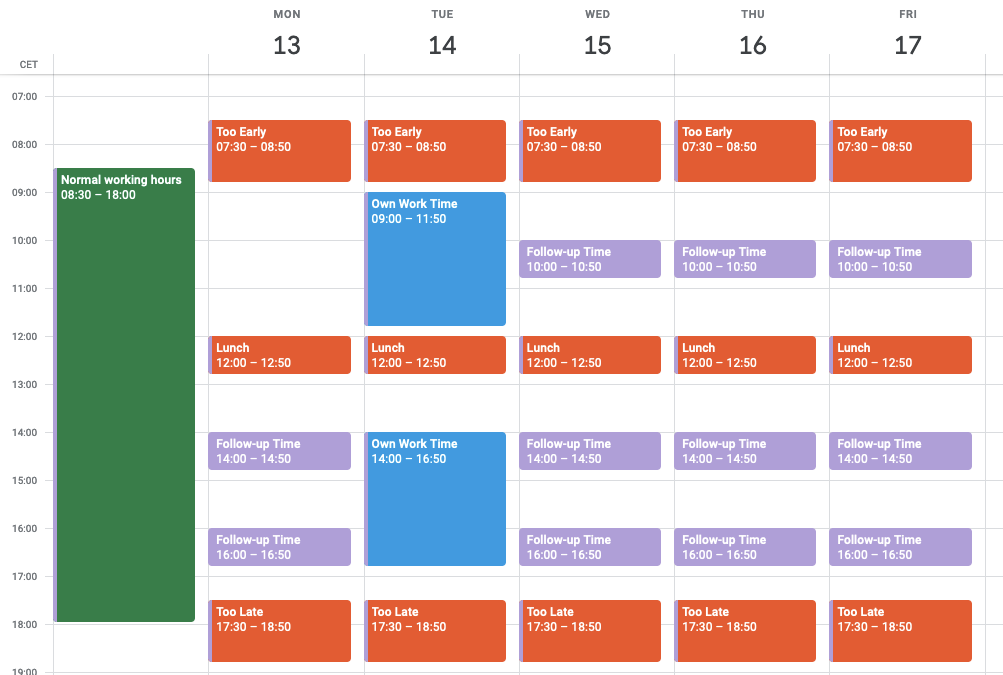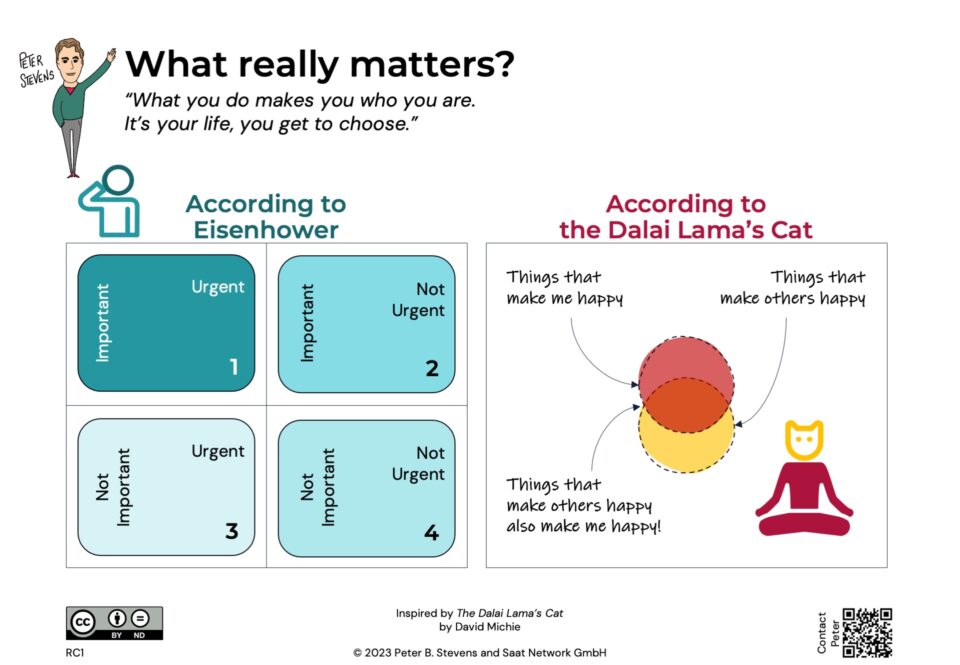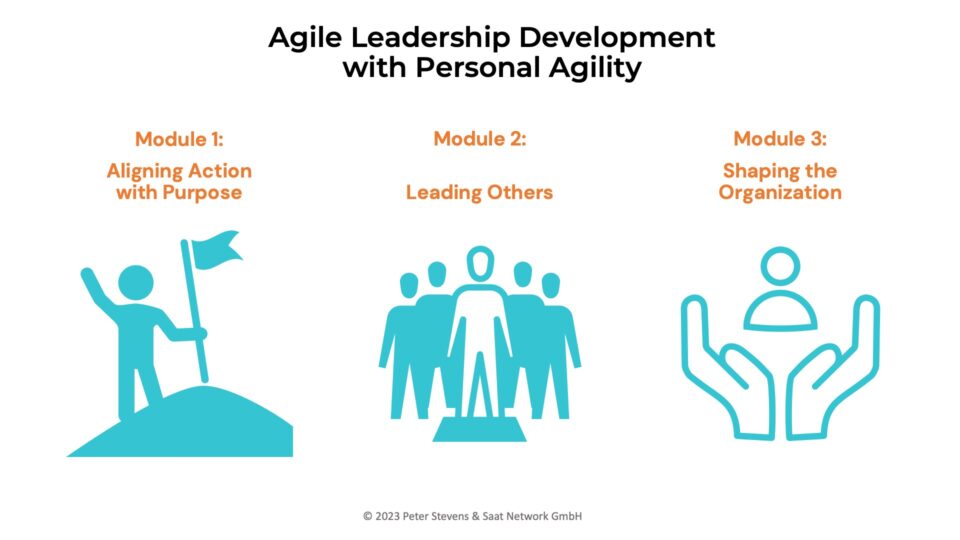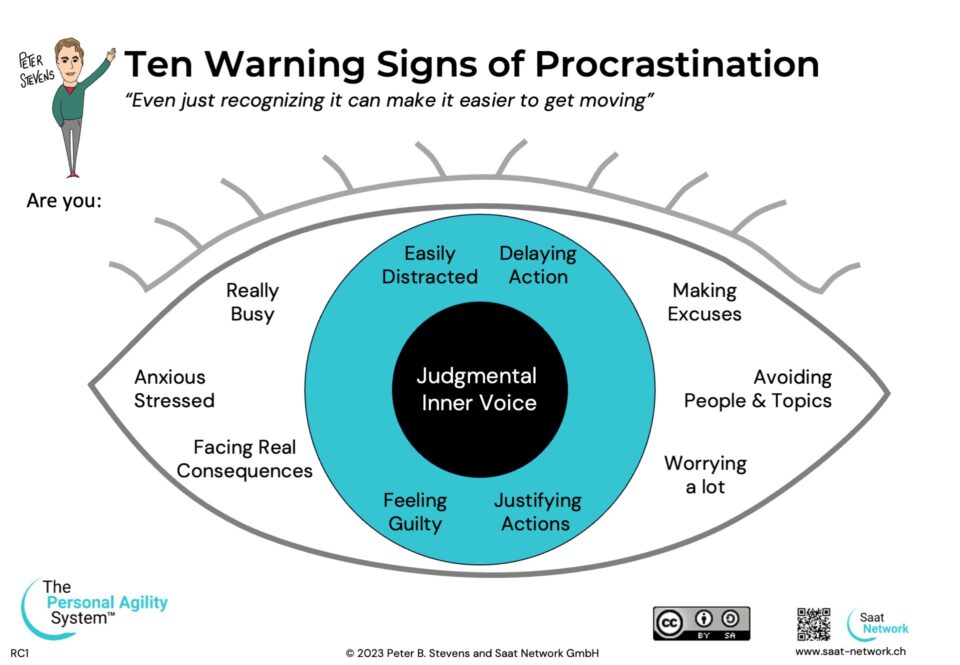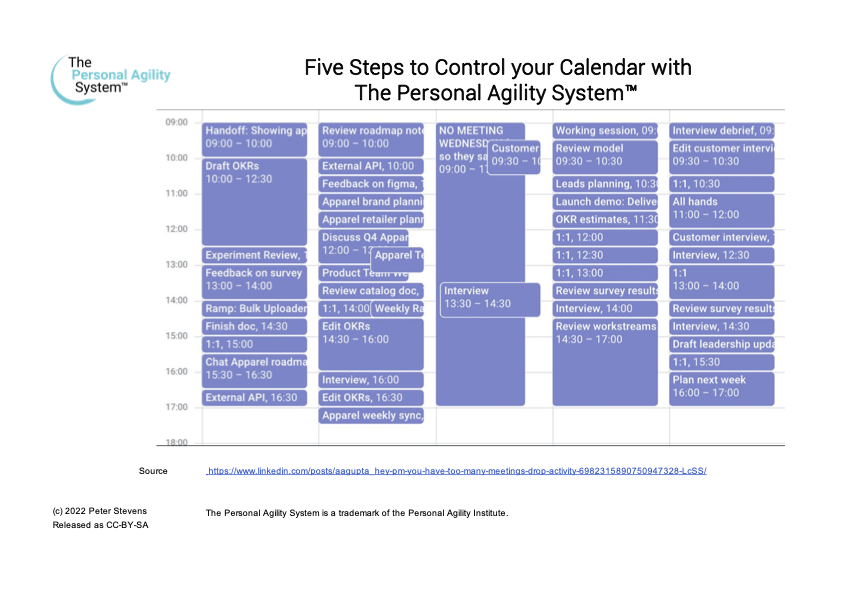
Rethink your meetings in 5 Steps
07-03-2023
Good Meetings FAQ
09-03-2023You can get your meetings under control. Try these meeting protocols for more energy and effectiveness in your team.
Some meetings are valuable uses of your time. Many of those meetings are spontaneous collaboration to address a challenge or issue. But too many meetings and too many one after the other drain your soul.
Here is a set of meeting protocols that will channel your meetings so you have more energy and better results:
- Recognize a block for company or team events. In the example, Monday morning is left blank for these invites.
- Block too early, too late and lunch times. For your own physical and mental well-being.
- Block time for your own work. In the example, most of Tuesday.
- Leave time open to start meetings on odd hours, 9, 11, 1pm 3pm, etc., and limit them to less than one hour. Leave these spots open to invites.
- Block time on even hours for follow-ups. Meetings produce work. You might do that work by yourself or in collaboration with others. Often the best time is right after the meeting!
Getting started is easy. Just block the time in your calendar. Communicate what you are doing and why, so people will understand and support you. They may even want to try it themselves. If someone pushes back, you can always make exceptions.
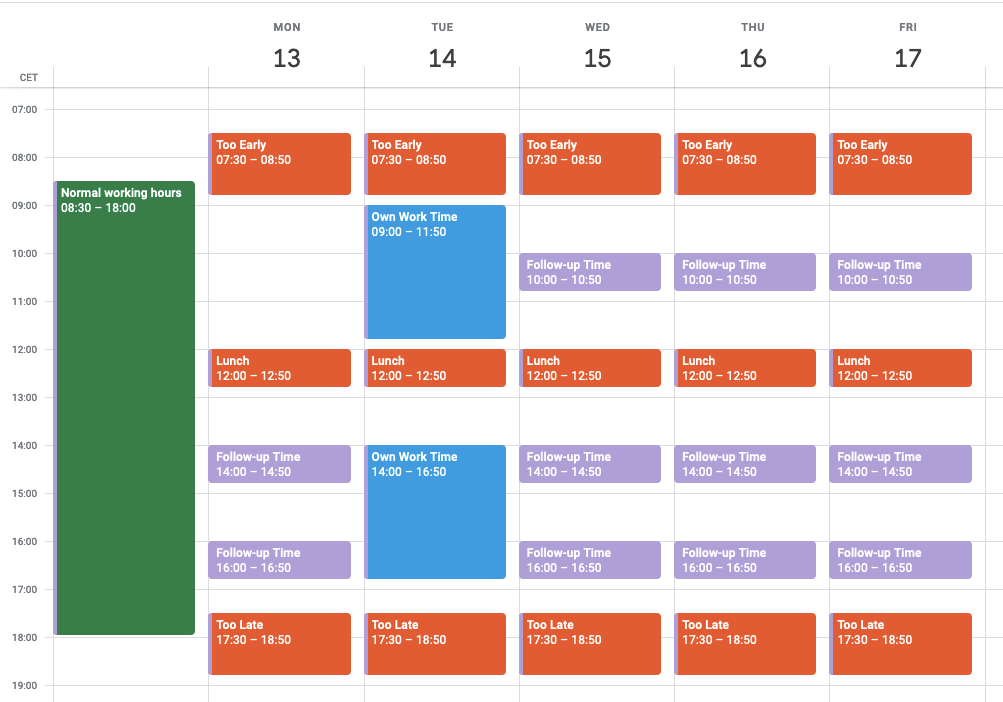
If your team has realized that meetings are out of control, your team try these protocols as an experiment for a few months.
“Won’t that mean I don’t time for all my meetings?” I would answer, “Of course you don’t have time for all your meetings!” That’s the problem. If you are like me, you also need to get work done.
The protocols are like time-boxing development into sprints. They encourage you to focus and prioritize. They are intended to ensure that you have time and energy to get things done beside you meetings.
If you apply the protocols as suggested, you have 18 slots of 1 hour and 5 slots of 30 minutes each, for a total of 20.5 hours of meetings. My research suggests that knowledge workers spend an average of 17 to 18 hours per week in meetings, though management spends even more. If you are at or below average, these protocols will not limit you much.
If the protocols really do limit you, this is an invitation to reflect which of these meetings really brings value, and which could be delegated or replaced. Probably you are doing a lot of overtime to keep up with your work.
When you look at your meetings, how much time do you spend? How much is valuable? Which meetings do you wish you could skip? Take a look at yesterday’s post about evaluating meetings in the context of what really matters to identify meetings that don’t bring value.
Have you used protocols like these? How did they work for you? Join the discussion on LinkedIn! Want help improving your performance? Let’s start a conversation!

